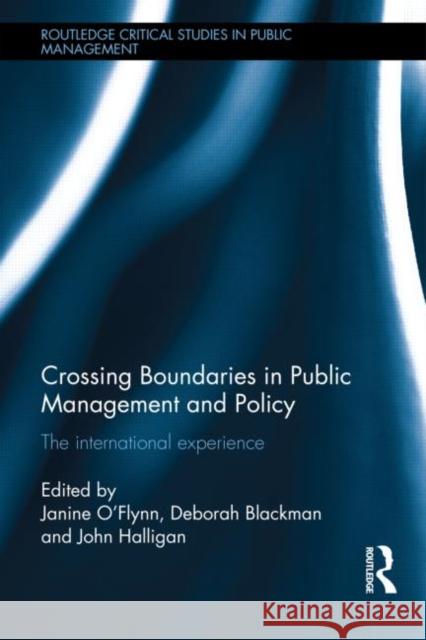Crossing Boundaries in Public Management and Policy: The International Experience » książka
Crossing Boundaries in Public Management and Policy: The International Experience
ISBN-13: 9780415678247 / Angielski / Twarda / 2013 / 316 str.
Crossing Boundaries in Public Management and Policy: The International Experience
ISBN-13: 9780415678247 / Angielski / Twarda / 2013 / 316 str.
(netto: 768,08 VAT: 5%)
Najniższa cena z 30 dni: 730,42
ok. 16-18 dni roboczych.
Darmowa dostawa!
In the 21st century governments are increasingly focusing on designing ways and means of connecting across boundaries to achieve goals. Whether issues are complex and challenging - climate change, international terrorism, intergenerational poverty- or more straightforward - provision of a single point of entry to government or delivering integrated public services - practitioners and scholars increasingly advocate the use of approaches which require connections across various boundaries, be they organizational, jurisdictional or sectorial. Governments around the world continue to experiment with various approaches but still confront barriers, leading to a general view that there is considerable promise in cross boundary working, but that this is often unfulfilled. This book explores a variety of topics in order to create a rich survey of the international experience of cross-boundary working. The book asks fundamental questions such as: What do we mean by the notion of crossing boundaries? Why has this emerged? What does cross boundary working involve? What are the critical enablers and barriers? By scrutinizing these questions, the contributing authors examine: the promise; the barriers; the enablers; the enduring tensions; and the potential solutions to cross-boundary working. As such, this will be an essential read for all those involved with public administration, management and policy.











